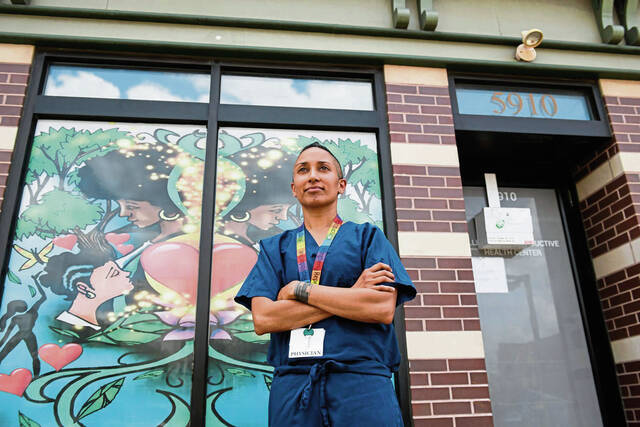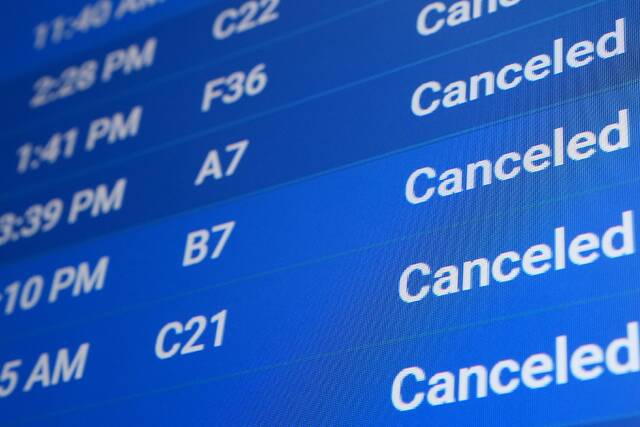Covid-19 not only resulted in immeasurable loss of life, it also permanently altered life as we knew it. The base of operations that is home shed its more proverbial association and became the place where business in all its forms got done. Computers and internet access represented a lifeline for people forging ahead through this once-in-a-generation health crisis.
The days of lockdowns and quarantines are thankfully behind us, but the fact remains that the digital highway has entrenched itself as a primary thoroughfare that people navigate on a daily basis.
The federal Affordable Connectivity Program is a vital lane for this flow of traffic by making internet access more affordable for those who can’t afford it by offering a $30 rebate on monthly internet bills for individuals and families. Currently, nearly 740,000 households in Pennsylvania rely on the ACP to bridge the gap between affordability and necessity. This lane, however, may close for good with the program set to expire at the end of the month.
That’s why we, along with our Pennsylvania House colleague Rep. Roni Green, have introduced HB 2195, which is aimed at establishing Pennsylvania’s own version of the ACP. This initiative echoes the eligibility criteria of its federal counterpart, with an additional focus on households with children aged 5-18.
The pandemic also caused snow days to evaporate quicker than precipitation on a summer day (Sorry kids!), and flexible learning days (FLBs) have become the means for students to learn and retrieve coursework from a computer. Multiple pieces of data from a survey conducted by the state’s Department of Education leave no doubts to their importance.
More than 400 commonwealth school districts are utilizing FLBs for the 2023-24 academic year, which accounts for nearly 80% of the total education institutions in Pennsylvania who applied for them. Nearly 96% of users reported their effectiveness in facilitating the program during the previous school term. One survey respondent from that term had this to say in terms of technical issues with FLBs: “To date, we have had little to no issues outside of what would occur in traditional brick and mortar classrooms.”
Most consequential, 75% of FLB entities were described as being “very effective” when it came to providing internet accessibility during the 2022-23 school year.
Telehealth emerged as a viable and trusted alternative to sitting in a doctor’s office with potential carriers of disease, too.
One statistic from a Pennsylvania Department of Human Services survey released near the end of 2020 found that during the pandemic itself, 96% of individual and family participants in the assessment received telehealth services at home. Another revealed that 75% of these same participants wanted to continue engaging with telehealth after covid-19 ended.
For physicians, participating in this setting allows them to observe patients in their home surroundings and correlate those attributes with a more informed diagnosis and/or the best ways of care. Telehealth also brings family members who live far away but with valuable input right into an appointment with the click of a mouse, and patients can see a doctor much quicker and save time with this service.
Then there’s the workplace. Cubicle days are numbered, and couch days are here to stay, thanks to Zoom and company.
Two years ago, one finding from a survey detailed that 64% of employees who never teleworked prior to the pandemic and whose job can be done at home found the practice beneficial to maintaining a healthy balance between work and their personal lives.
The digital divide is most stark for Latino and Black households, as 25% and 35%, respectively, do not have access to broadband internet, according to a 2022 state Department of Community and Economic Development report.
President Biden is far from alone in the fact that time is of the essence. Swift action must be taken to ensure continuity of support for those in need. The consequences of inaction are dire, with countless families at risk of being left behind in an increasingly digital world.
In the face of federal uncertainty, we can build a brighter future for Pennsylvania — one where internet access is not a privilege but a fundamental right and essential for full participation in modern society.
Rep. Lindsay Powell represents Pennsylvania’s 21st District and Rep. Aerion A. Abney represents Pennsylvania’s 19th District.








